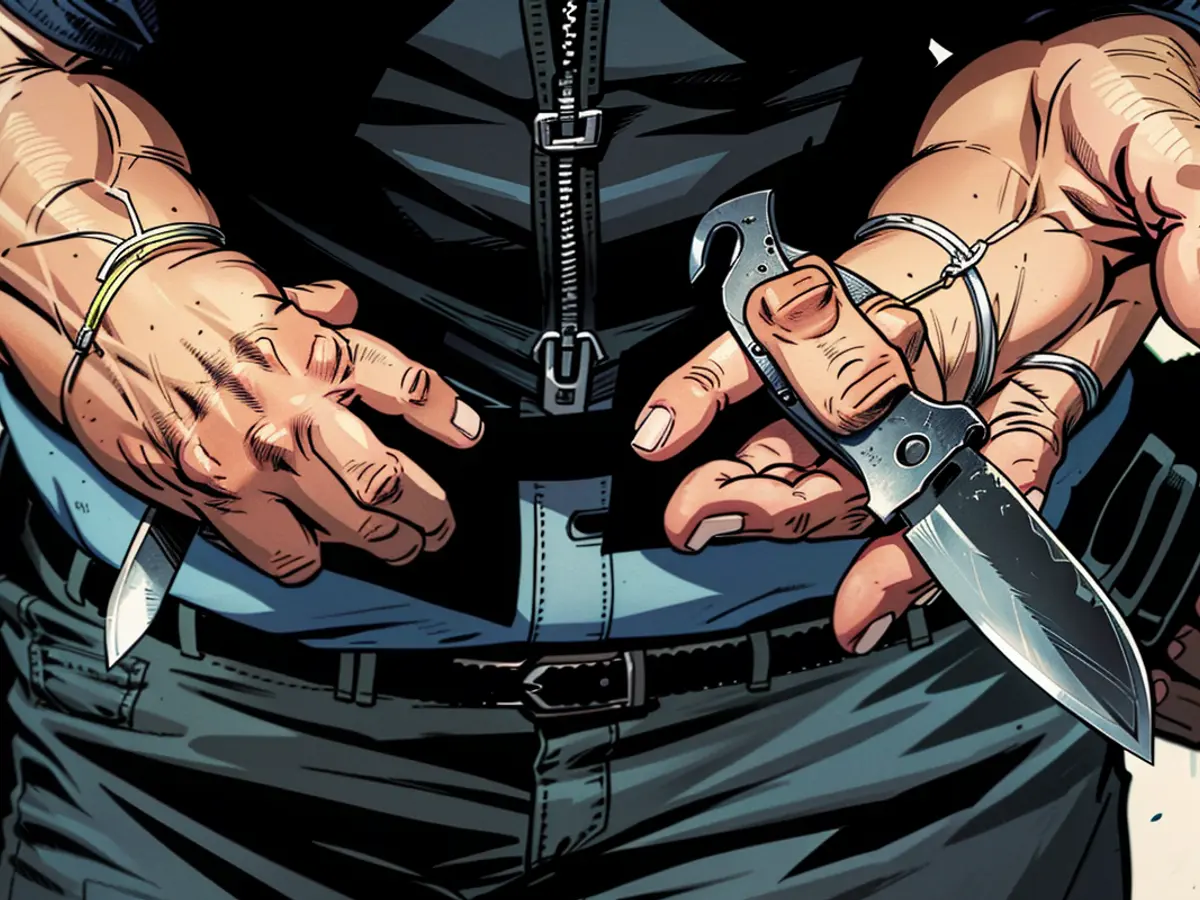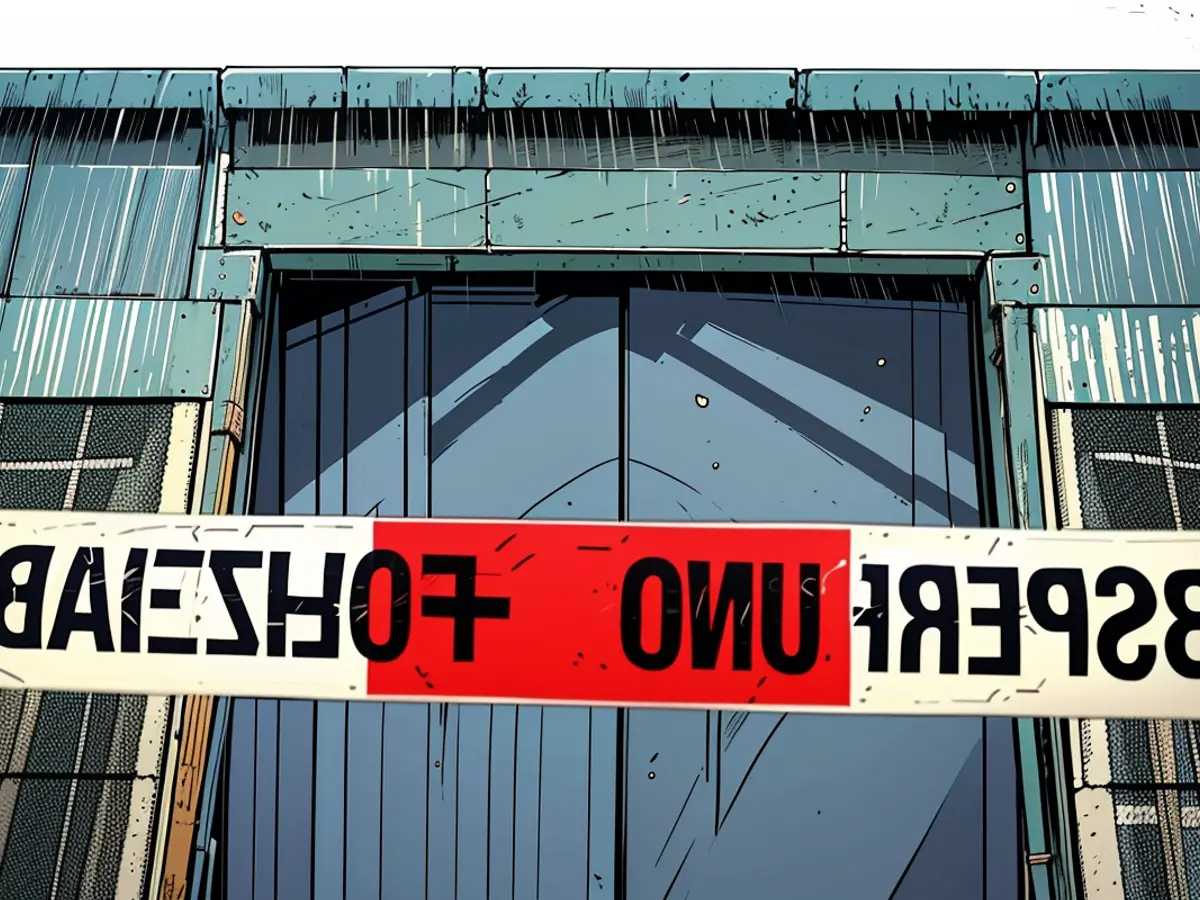Law enforcement agencies at the federal level document numerous instances of violent knife-related incidents at railway stations.
In the initial six months of 2024, the majority of knife-related incidents reported by the German Federal Police didn't materialize at the major metropolitan train stations like Berlin, Frankfurt, or Hamburg, but rather at Düsseldorf and Dortmund. These figures have sparked discussions about toughening knife laws.
So far in 2024, the Federal Police has recorded 373 offenses involving knives at German train stations. Compared to 2023, when a total of 639 such incidents were reported, it's a decrease. According to figures from the Federal Police, shared with the German Press Agency, "knife-related offenses" encompass instances where a knife was carried or used. Their numbers may still undergo adjustments.
Besides these incidents at train stations, there were 7 knife-related offenses at smaller stops, or "stops" not categorized as train stations, in the first half of the year. This was also the case in 2023, with 11 such incidents. Interestingly, these offenses were more common on the train tracks, where the Federal Police recorded 84 knife-related incidents between January and June, compared to 196 for the entire previous year.
Dortmund and Düsseldorf (with 33 offenses each) had the most knife-related offenses in 2023, followed by Frankfurt am Main (29). However, in the first half of 2024, Hamburg (21), Hannover (19), and Cologne (15) saw the most incidents. Despite this, large train stations do not appear to be the sole determinant, as passenger volume alone does not seem to be the deciding factor. According to Deutsche Bahn, the most frequently used station in Germany is Holland Main Station, with around 550,000 travelers and visitors daily, closely followed by Frankfurt Main Station with around 500,000.
"Part of an open system"
The security of Deutsche Bahn and S-Bahn's train stations falls under the responsibility of both the railway and the Federal Police. For U-Bahn and buses, the operators and respective state police are responsible. As a spokesperson for the railway explained, "Our train stations are part of an open system." Conflicts that occur in public places, parks, public facilities, and streets throughout Germany are also played out in the station and its surroundings. Around 20 million travelers and visitors use the approximately 5,400 train stations each day.
In response to the increase in knife attacks, Germany's Federal Minister of the Interior, Nancy Faeser, plans to tighten knife laws. She announced in "Bild am Sonntag" that she intends to "further restrict the carrying of knives in public." This would mean allowing knives with a blade length up to six centimeters, as opposed to the current twelve centimeters, in public. There will also be a blanket ban on carrying dangerous switchblades.
Andreas Roßkopf of the Police Union told "Bild" that while knife bans at train stations are a sensible idea, legal changes are necessary for the Federal Police to enforce them. Currently, random checks are not feasible.
In the summer of last year, the Interior Ministers' Conference assigned Faeser the task of examining a nationwide regulation for weapons bans on trains and at train stations, and "if necessary, to influence a corresponding amendment to the transport conditions of Deutsche Bahn, particularly regarding knives." However, the current transport conditions of the railway already prohibit items and substances that can disturb, injure fellow passengers, or damage the vehicle.
The discussion about strengthening knife laws in Germany has been prompted by the decrease in knife-related incidents at major metropolitan train stations, but an increase at smaller stops and on train tracks. Germany's Federal Minister of the Interior, Nancy Faeser, plans to tighten the German law on arms by restricting the carrying of knives in public.







